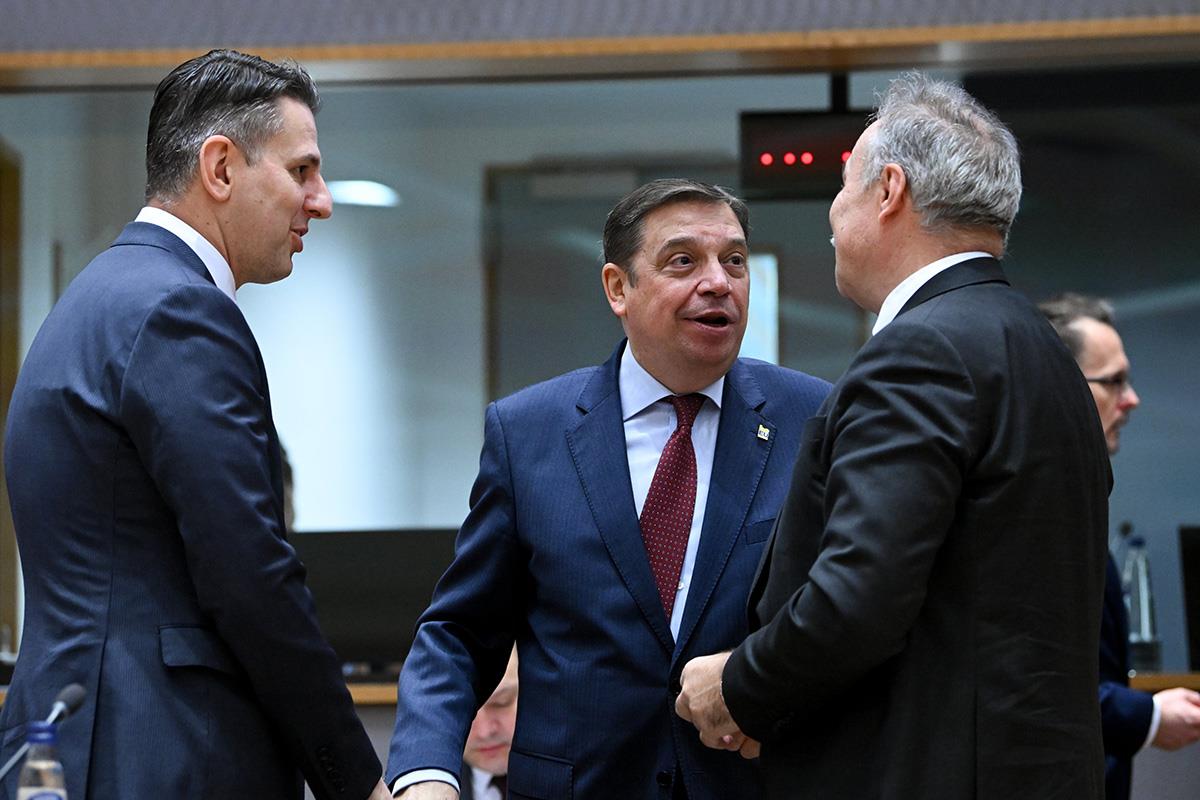Planas: The CAP budget needs to be commensurate with the obligations faced by farmers
News - 2024.1.23
 The Minister for Agriculture, Fisheries and Food, Luis Planas, attends the Council of EU Agriculture and Fisheries Ministers
The Minister for Agriculture, Fisheries and Food, Luis Planas, attends the Council of EU Agriculture and Fisheries Ministers
The Minister for Agriculture, Fisheries and Food, Luis Planas, has defended the need to increase the weight that the Common Agricultural Policy (CAP) has in the European Union (EU) budget so that it can fulfil its foundational role of providing stability and security to farmers and livestock breeders, especially at a time when there is a desire for food autonomy that guarantees a sufficient supply of quality food for the entire EU population.
The Council of EU Agriculture and Fisheries Ministers held today in Brussels discussed the strategy for dialogue on the future of agriculture in the European Union, two days before the President of the European Commission, Ursula Von der Leyen, chairs the first forum of this strategy, which she herself announced last September in the debate on the State of the Union, a process that Planas said is very much awaited and interesting. "I am a strong advocate of continued dialogue, because farmers must be actors and participants" in the policies that affect them, he remarked.
The minister advocated giving farmers and livestock breeders a leading role in this process, so that "they are listened to and their points of view are taken into account", something that has not always been the case in recent years, when there has been an accelerated transformation of the European Union's agricultural policies that have not always been well understood by them.
He pointed out that the European Commission "has imposed environmental initiatives on the primary sector, which are undoubtedly necessary and which we support, but without due explanation and economic support", and emphasised that it is essential that for a farm to be sustainable it must be profitable, which is why it is necessary that the agro-ecological transition required of farmers and livestock breeders be accompanied by sufficient financial resources.
He insisted that for the future it is necessary to recover the centrality of agricultural policies and reinforce the original role of the CAP in providing stability and security, and this requires a budget that is up to the challenges and demands that farmers and livestock breeders have to face and that income support plays a fundamental role and is not only for environmental actions. The minister said that the objectives of this EU policy must continue to be based on the three pillars of sustainability: environmental, economic and social, but the latter two must regain prominence.
In addition to this financial support, the minister also advocates strengthening training, as specific new and more sustainable practices are often demanded of farmers without them having the necessary training on how to do so and how to take into account the specific conditions of each farm.
Planas pointed out that it is necessary to define a stable legal framework in the medium and long term in order to avoid a constant feeling of uncertainty about new environmental regulatory measures. Furthermore, he pointed out that in this strategic dialogue it is necessary to consider that the change in the modes of production, in the case of agriculture, has a direct impact on the way of life in rural areas.
He also reiterated Spain's demand to introduce mirror clauses in EU trade treaties with third countries to avoid creating a competitive disadvantage for European farmers and livestock breeders.
Gene editing regulations
At today's Council of Ministers, the Belgian presidency, which succeeded the Spanish presidency, set out the priorities for this six-month period, which will be marked by the European Parliament elections in June. Luis Planas pointed to one the dossiers currently pending, the one on new genomic techniques, which was one of the issues promoted by the Spanish presidency in the previous six-month period, "because every month that we have a regulatory delay means a loss of competitiveness for European agri-food production".
He also stressed that the application of new genomic techniques is a key issue for the adaptation of agricultural production to climate change. He acknowledged that it would be impossible to finalise a regulation before the European elections are held, but stressed that it was important to make as much progress as possible until then on the work carried out by the Spanish presidency.
At the Council, the minister expressed Spain's support for maintaining trade flows with Ukraine and for maintaining measures to facilitate the export of products from this country that is at war with Russia. Trade policy with Ukraine, he explained, should pursue the dual objective of helping the population and contributing to the stabilisation of international markets for agricultural products.
On trade issues, Luis Planas expressed concern about the decline in EU wine exports to third countries and advocated simplifying the current complexity of promotion schemes, which leads some operators to refrain from applying for them.
Non official translation




